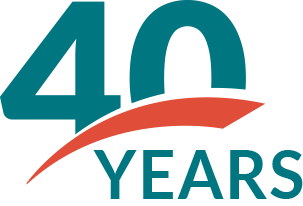 Celebrating over
Celebrating over
of providing clients with a creative approach to legal advocacy, litigation strategy, conflict resolution, and out- of-court dispute resolution.
Sherman Law LLP is an award-winning family-owned law firm located in Waterloo Region with focus and expertise in family law, family mediation, collaborative divorce, estate planning, and estate administration. We provide knowledgeable and highly-skilled representation to clients across Ontario.
With over 40 years of experience advocating for clients in family court, we recognize that family disputes are often best resolved outside the courtroom. We are dedicated to resolving our clients' disputes through consensual dispute resolution options that are less contentious, quicker, and more cost-effective than traditional litigation. However, we are also experienced litigators prepared to advocate for our clients in court when necessary.
Our lawyers and mediators employ an integrative approach to the practice of law, leveraging knowledge from various related disciplines and collaborating with professionals in those fields to enhance the services we offer to our clients. Our legal team has empathy and a passion for our work, driven by a strong desire to assist our clients to achieve their goals. We suggest peaceful and cost-effective methods of resolving disputes.
The hummingbird featured in our branding symbolizes healing, endurance, wisdom, patience, and perseverance. We embody these values in our commitment to practising law as a healing profession.
LEARN MORE ABOUT OUR
INTEGRATIVE APPROACH

Our lawyers and mediators resolve legal disputes by applying an insightful, interest-based approach to dispute resolution that considers more than strict legal rights, duties, and obligations.
We carefully assess the values, concerns, and interests of our clients to develop customized legal solutions that prioritize reducing conflict and enhancing family communication. Our capacity to help clients gain a broader perspective enables us to provide exceptional advocacy.
We concentrate on the goals and relationships that matter most to you and to your family by providing a diverse range of dispute resolution options, including collaborative divorce and family mediation.
GET STARTED WITH A LAWYER TODAY

When you engage a member of our legal team, you are retaining advocates, facilitators, and mediators with a large breadth of knowledge and a proven track record of delivering innovative and client-focused solutions for all of life's unexpected challenges.
For over four decades, our family-owned law firm has upheld a commitment to excellence. We strive to provide you with legal services that leverage the best strategies, resources, and creative options available in our industry. To our team, the phrase, “We are in this together, your family and ours” ®TM is not merely a slogan; it is our unwavering promise.

Our extensive experience enables us to provide legal expertise that rivals that of large regional and national firms, while also offering a level of understanding and empathy that is increasingly rare in today's legal community.
Our service commitment is to exceed our clients’ expectations by delivering exceptional professional service while ensuring the best possible outcomes at a reasonable cost.
Our vision is to move families forward from conflict and disputes towards healing, providing our clients with a sense of security and stability amidst uncertainty, and consistently prioritizing the best interests of children. To realize this vision, we dedicate our professional efforts to fostering positive change in Waterloo Region through wholistic and integrative legal practices that enhance the lives of our clients and the community.
The famous poet and civil rights activist Maya Angelou wrote,
"When you learn, teach. When you get, give."
Our lawyers and staff take these words to heart. We actively engage with our community through participation in sports and recreational clubs, volunteer initiatives, and charitable organizations. Some of our team members have taught business law courses at Wilfrid Laurier University, while others have been honoured with community accolades for their philanthropic efforts, including the Young Adult Volunteer Philanthropist of the Year Award from the Waterloo Wellington Fundraising Executives and the K-W Kinsmen Club Award for Community Service. We are committed to advocating for children and youth, with our lawyers serving as Directors on various Boards, such as Family and Children’s Services of the Waterloo Region and The Ontario Association for Family Mediation.